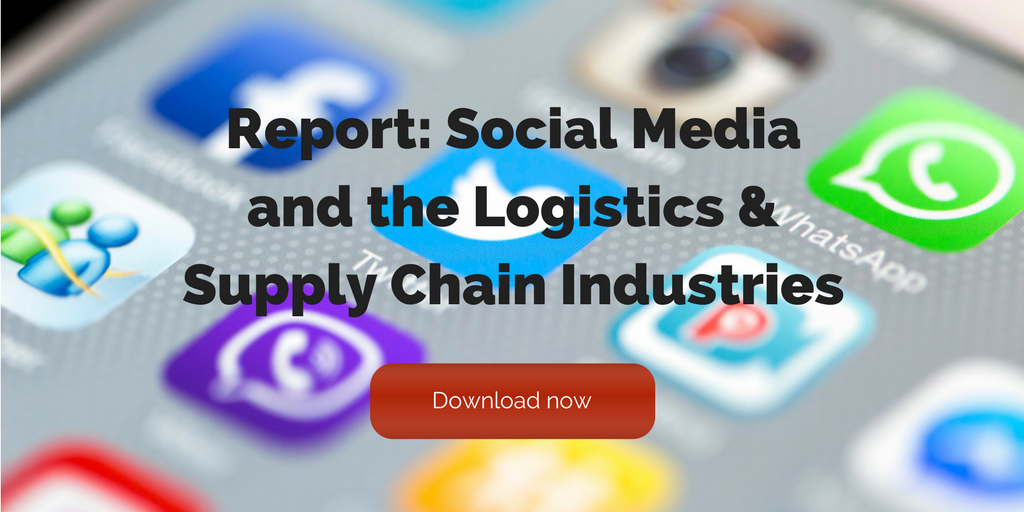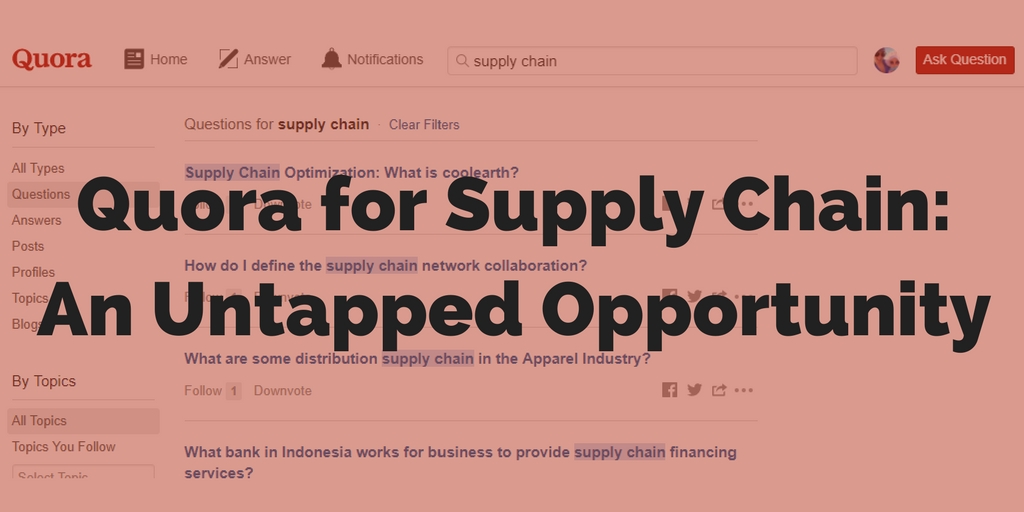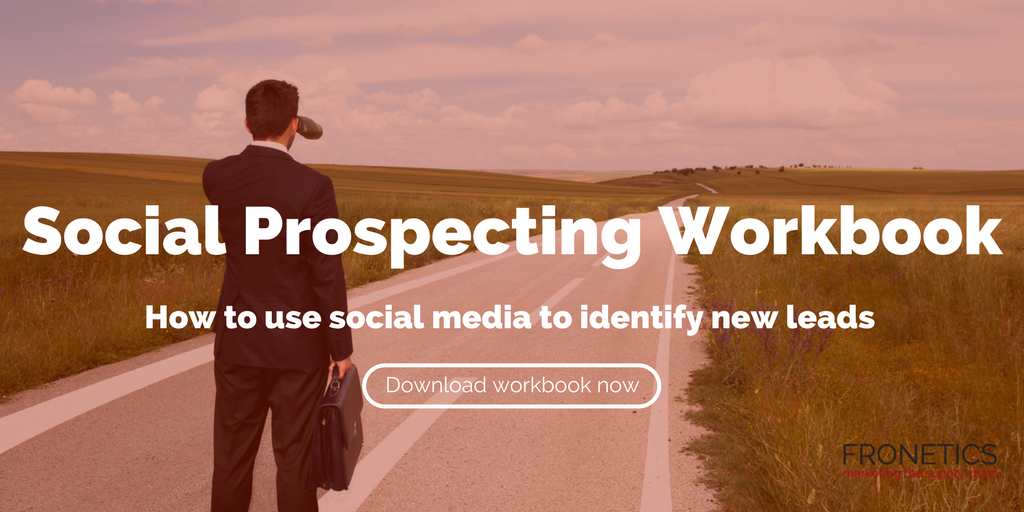
by Fronetics | Feb 20, 2018 | Blog, Content Marketing, Current Events, Logistics, Marketing, Social Media, Supply Chain
One of 2018’s fastest growing marketing trends is influencer marketing. Companies will increase their influencer marketing budget to keep up with the competition.
You’ve probably heard the buzzword by now: Influencer marketing seems to be on the tip of every marketer’s tongue these days. Linqia’s latest report, The State of Influencer Marketing 2018, shows that B2C companies are already taking full advantage of this marketing trend. Their report shows that 86% of B2C marketers used influencer marketing in 2017, and 92% of marketers that tried it found it to be effective.
B2B marketers, on the other hand, have been slower to adopt this new marketing trend. Influence 2.0 – The Future of Influencer Marketing Research Report 2017 showed that only 11% of B2B marketers have an ongoing influencer program.
To understand why influencer marketing is becoming so popular and why B2B companies need to jump on the trend, let’s start with the basics.
What is influencer marketing?
Influencer marketing is a form of marketing in which focus is placed on influential people, rather than the target market as a whole. Marketers identify individuals that have influence over potential buyers and create marketing campaigns and activities around these influencers.
For example, Microsoft teamed up with National Geographic last year to launch an influencer marketing campaign, called “Make What’s Next.” The technology giant leveraged some of the most famous adventure photographer influencers on Nat Geo’s Instagram for the campaign. The objective was to bring awareness to young women with interest in science, technology, engineering and math (STEM). By utilizing Nat Geo’s most heavily followed female photographers, Microsoft was able to access a built-in following.
Why influencer marketing works.
Influencer marketing is extremely effective because of three key components:
- Social reach: Influencers can reach millions of followers (and consumers) through their social media channels, websites, and blogs.
- Original content: Influencers work with marketers to produce original content for your brand.
- Consumer trust: Through their existing, strong relationships with their audiences, influencers have a built-in level of trust and can influence consumer opinions.
Content marketers are working overtime to update their content marketing strategies to include influencer marketing campaigns. Consumers no longer want to hear from brands about their products; they want someone they trust to recommend products and services. This is where influencer marketing comes in to play.
Marketers across industries found influencer marketing to be so effective in 2017, that 52% of are planning programs that leverage multiple types of influencers (celebrities, top-tier bloggers, micro-influencers) in 2018.
Where do you begin?
Instagram should be your starting point. According to new research, influencer marketing on Instagram will have generated over $1 billion by the end of 2017, with significant annual growth going forward. With more than 700 million users, Instagram’s platform allows influencers to easily share photos and videos with their followers. Product promotion has never been easier.
Boxed Water turned to Instagram influencer marketing to market its philanthropic campaign, The ReTree Project. The company paired with social influencers, like actors Aidan Alexander and Jaime King, and YouTube star Megan De Angelis, to spread the word about their new campaign. These popular Instagram users asked consumers to post a photo with the hashtag #ReTree and, in turn, Boxed Water would plant two trees for every photo posted. Just one month after launching the campaign, Boxed Water generated more than 2,600 posts with the hashtag.
With 39% of marketers planning to increase influencer marketing budget this year, B2B companies are quickly seeing the leverage that influencers can have over their target audiences. By pairing your products or services with the right influencer, marketers can easily tap into thousands of potential consumers, increasing website traffic and leads.
Have you tried influencer marketing? How was your experience?
Related posts:


by Fronetics | Nov 21, 2017 | Blog, Current Events, Marketing
These 10 podcasts for marketers discuss the latest news and trends in the marketing world relevant to the supply chain and logistics industries.
Podcasts have surged in popularity over the past few years. At least 112 million Americans have listened to podcasts, a figure up 11% from last year, with 67 million listening at least monthly. So why are they so popular?
Podcasts are a series of digital audio files that listeners can subscribe to. With the flexibility to listen at their convenience, followers are drawn to the ease and mobility of podcasts. And the available topics are endless.
For supply chain and logistics marketers, podcasts provide the latest digital marketing news, as well as innovative trends that are new to your industry. Here are 10 podcasts that deliver the most up-to-date news in marketing for supply chain and logistics companies.
10 supply chain and logistics marketing podcasts
Millions of dollars are being left on the table right now by supply chain companies because of poor marketing! Supply Chain Gold delivers actionable marketing strategies and information to logistics and 3PL companies, distribution centers, and fulfillment centers to help bring in more sales and increase profit margins. The Supply Chain Gold podcast warehouses internet marketing secrets that your company can leverage to lower customer acquisition costs, grow revenue, increase net profits, drive brand recognition, and dominate your industry.
- #AskGaryVee
Gary Vaynerchuk — author, speaker, and owner of multi-million dollar marketing company VaynerMedia — uses his podcast to answer questions about marketing, social media, and general entrepreneurial topics that his followers ask on social media. If you’re looking for a high-intensity host whose responses are no-fluff, honest, and a tad explicit from time to time, Gary might be just the straight-talking expert you need.
The Marketing Book podcast helps business owners and marketers keep up with the smartest thinking in the quickly changing field of modern marketing. Each episode interviews authors and marketers to give you actionable marketing insights, tips, tactics and resources to help grow your business.
Social Media Examiner’s weekly podcast is hosted by Michael Stelzner and other members of SME’s team. Each podcast focuses on new social media features and strategies, providing listeners with actionable tips they can use to improve their social media results.
Copyblogger FM is a weekly, short-form broadcast hosted by Sonia Simone. Each week she and a team of rotating experts discuss the week’s news and updates in the field of content marketing, email marketing, copywriting, conversion optimization, and more.
John J. Wall and Christopher S. Penn host a 20-minute, weekly show recorded in a local coffee shop. The podcast is designed to be casual and conversational. They share tips on social marketing, SEO, search marketing, copywriting, affiliate marketing, and more. They also take listener questions.
Industry experts Eric Siu and Neil Patel offer users unconventional marketing wisdom that will make you want to kick some of your traditional strategies to the curb. Their goal is to bring valuable, actionable marketing tips in just 10 minutes.
Buffer’s blog is highly successful, so no wonder its podcast is equally informative. The content will appeal to anyone who practices social media marketing, whether you’re brand new to marketing or you’re a social media practitioner. They regularly have industry leaders on the show, including Mari Smith and Neil Patel.
Know Your Audience is a weekly podcast that interviews journalists, bloggers, data scientists, and analytics/audience development professionals. The goal is to start a meaningful conversation about what it takes to create engaging content and learn from the people who are shaping the future of media.
Listen and learn from interviews with social business leaders representing top brands and agencies. Host Bernie Borges leads an educational format as guests share their experiences and insights on social business topics including marketing, selling, customer service, employee advocacy, recruiting and commerce to fuel your social business journey.
Related posts:


by Fronetics | Oct 11, 2017 | Blog, Content Marketing, Current Events, Marketing
As peer recommendation becomes increasingly important to B2B buying decisions, user review sites can make or break a business.
How often do you consider going to a much-hyped summer movie but change your mind when a friend shares the terrible Rotten Tomatoes reviews? According to Quartz Media, many a summer movie has proven more “bust” than “blockbuster” after negative feedback on the movie review site.
Just as Rotten Tomatoes can sink a would-be summer blockbuster, user-review websites can have a toxic effect on your business.
B2B buyers are increasingly relying on peer recommendations in the purchase process. In fact, 67% of those surveyed in Demand Gen’s 2017 B2B Buyers Survey reported that peer reviews are an important part of evaluating a list of solution providers.
Third-party user review sites as peer recommendations
Third-party user review sites function like peer reviews, particularly in the B2B space, where a buyer can’t always get a good vendor recommendation at a neighborhood dinner party. They need industry peers that have experience with these vendors to provide honest feedback.
So when someone leaves positive feedback about your business on one of these third-party sites, it’s a huge win for you. Potential buyers will see your customer’s kind words and form a positive association with your brand name. It can be the difference in winning a new customer’s business.
Dealing with negative user reviews
While your business will benefit greatly from positive reviews, it’s important to acknowledge that not all reviews will be favorable. You need a strategy for dealing with negative reviews. Here are a few tips:
1) Ignoring a bad review won’t make it go away.
Take the time to respond to criticism online, publicly if possible. Acknowledge the concerns of the reviewer, offer solutions, and invite them to contact you directly to resolve the issue. Negative reviews don’t have to be disaster — they can even be an opportunity for growth.
2) Learn from your mistakes.
This one may seem obvious, but you’d be surprised how often business don’t take negative reviews seriously, only to make the same damaging mistakes over and over again. If the reviewer has a valid concern about your product or service, take the time to address it internally.
3) Encourage more reviews.
Reviews are a way to empower your customers, and they represent vast opportunities for your business. Seek them out!
Related posts:

by Fronetics | Oct 9, 2017 | Blog, Content Marketing, Marketing, Social Media, Talent
As peer influence becomes increasingly important in B2B buying decisions, empowering employee brand ambassadors will benefit your bottom line.
I recently attended a dinner party where I met a new acquaintance. We talked about our families, our hobbies and, of course, our jobs. She recently started working for a small business about which she was tangibly passionate. After listening to her talk, I went home, immediately started following the company on social media, and purchased some products.
Some companies are overlooking their greatest marketing tool: their employees. That woman made a big impression on me and actually influenced a sale. The experience reflects a trend that’s also growing in the B2B space: the impact of peer influence on buying decisions. In fact, 68% of B2B buyers say they give credence to peer reviews in the purchase process.
Imagine the number of people you could reach through each employee’s peer network. It’s a massive opportunity.
I’ve written lately about the rise of influencer marketing. It’s a strategy B2B businesses are starting to understand and use to their advantage. But you don’t need a Kardashian or even an important industry professional to get started. Employees are your most natural, ready-made influencers.
Here are 3 reasons to invest in making your employees brand ambassadors.
3 benefits of employee brand ambassadors
1. Increased social media reach
According to a study conducted by the MSL Group, employee advocates are connected to 10X as many people as their brand on social media, and can increase the reach of brand content by 561%. If your employees are posting about your company on social media, they’re reaching a much wider audience than your company page is.
While 57% of companies have a LinkedIn company page, 94% of B2B buyers use LinkedIn to distribute content. If your employees are posting company content to their personal LinkedIn accounts, imagine the potential range your brand has to reach new audiences. And these people aren’t hearing it from your corporate page. They’re hearing it from a peer connection. That’s definitely more powerful.
2. Increased brand engagement
When it comes to increasing brand engagement, there is no better place to start than with your own employees. Peer influence is a natural extension of employees who believe in your company and its mission.
While only 3% of employees share company-relevant content on social media, they actually drive a 32% increase in engagement. And their advocacy has a greater impact their peers’ buying decisions than you might imagine. Studies show that leads gathered as a result of employee advocacy convert 7X more often than other leads.
3. Elevated employee (and company) performance
While your employees are advocating for your company, they will also benefit from their new role as brand ambassadors. They will be more engaged and invested in their jobs. And the additional responsibility will foster a sense of pride and professional growth.
That pride translates to greater productivity. Companies with engaged employees outperform those without by up to 202%. But that’s not all! Companies with highly engaged employees saw a 20% increase in sales and a 10% in customer ratings.
Empowering your employees
Successfully reframing your employees as brand ambassadors requires creating a culture that empowers and incentivizes employee participation. Offer them the appropriate training or knowledge. Ask them to complete specific tasks (e.g., sharing company content), and give them room to be creative in their ambassadorship as well. Make sure you regularly engage them and thank them for their help.
Keep in mind: Employees are much more likely to participate if what you’re asking them to do is seen as complementary, not supplementary, to their workload. Make sure you are appropriately compensating them for any activity outside of normal working hours to avoid resentment. And, most importantly, keep the dialogue open. You never know how impactful your employee brand ambassadors can be.
Related posts:

by Fronetics | Oct 3, 2017 | Blog, Content Marketing, Marketing, Social Media, Strategy
Learn how a mobile advertising network and an inbound marketing agency tried Quora as a marketing tool.
Last month, I gave you some tips on how supply chain and logistics marketers can use Quora to build their brands. If you’ve forgotten why you should be incorporating Quora into your marketing strategy, here’s a quick recap:
- Research: Quora offers amazing insight into what thought leaders in the supply chain and logistics industries are focused on. Just by tuning into the conversation, you can gain extremely valuable knowledge.
- Connections: This social media platform gives you a perfect space to connect with peers in your industry and with potential buyers, as well.
- Reputation building: Quora is one of the best tools out there for reputation building. It allows you to participate in and contribute to conversations that can shape the future of your industry. Using this platform effectively gives you the opportunity to become a resource for others in your industry and for your target buyers — and there’s no better reputation builder than that.
Plenty of business are already using Quora extremely effectively, seeing ROI and more. But supply chain and logistics companies have yet to jump on this untapped opportunity. Let’s take a look at a few success stories.
2 B2B companies successfully using Quora
Kiip
This mobile advertising network has a unique business model that “redefines how brands connect with consumers.” Back in 2014, the marketing team did a series of experiments — one of which was answering questions on Quora — to figure out which growth strategies would be most beneficial for the business model. Read about Kiip’s Quora experiment here.
Kevin Fishner, Kiip’s director of growth, said that his goal in answering Quora questions was to “build our brand presence in the mobile advertising space while driving quality leads to our site.” He offers the important insight that there is a fine line between offering valuable answers and blatantly pitching your product.
“If the question directly pertained to Kiip,” Fishner says, “I’d drop a link at the bottom of my answer. If it was a more generic mobile advertising question, I’d use insights from our campaigns at Kiip and leave it at that.”
Fishner points out that answering questions thoughtfully takes a significant time investment. But in the end, this investment is worth it for your business in all kinds of ways.
As you join the Quora conversation, keep Fishner’s insights in mind. Promoting your brand isn’t always about pitching your product. Becoming a thought leader can be just beneficial, if not more so, for your brand and, ultimately, for your bottom line.
IMPACT
Impact is an inbound marketing agency based out of Connecticut. Earlier this year, IMPACT blogger Carolyn Edgecomb wrote about how the company used Quora marketing to build brand awareness. Like Fishner, she points to following core advice for using this platform: “Hustling or selling is exactly what you shouldn’t be doing on Quora. Instead, aim to spread knowledge.”
Based on IMPACT’s experience on the site, she suggest that “by regularly engaging with other members, you’re able to gain key insights from leading experts, target your audience, and even repurpose your content while answering and asking questions.”
For IMPACT, Quora was less about generating ROI and more about “increasing brand awareness and establishing thought leadership.”
Supply chain and logistics companies can take inspiration and insight from these two Quora marketing success stories. The field is largely open. Start looking for questions you can answer, become a part of the conversation, and aim to become a thought leader.
Related posts:








